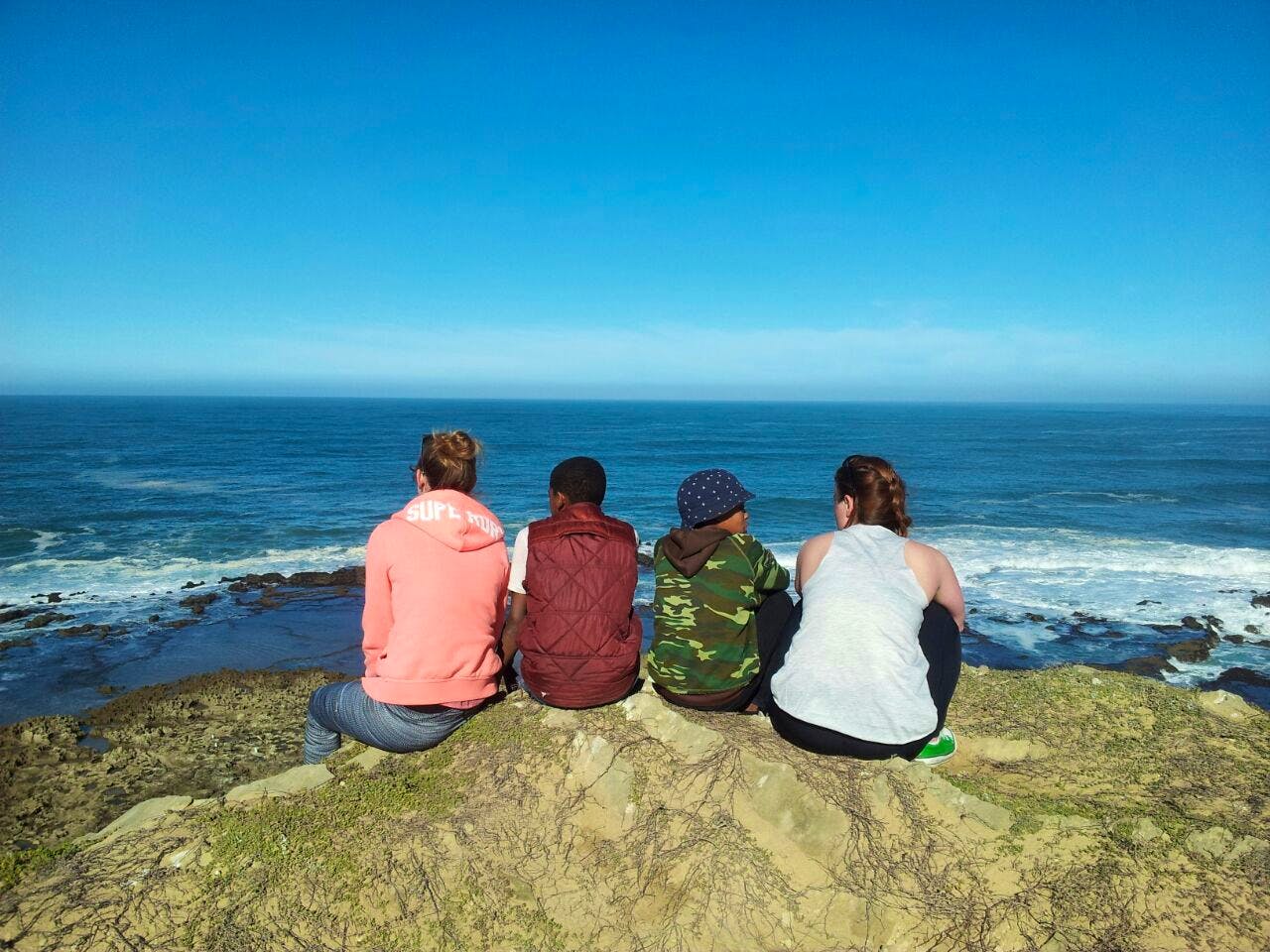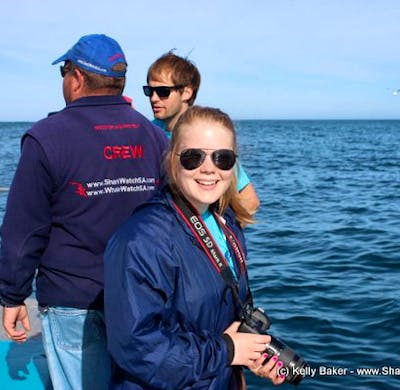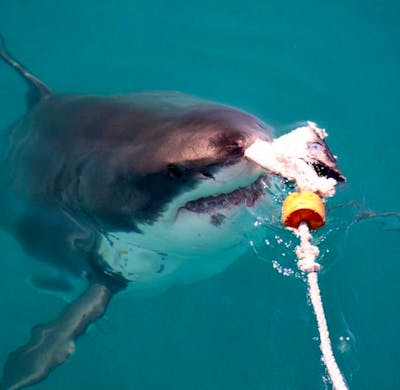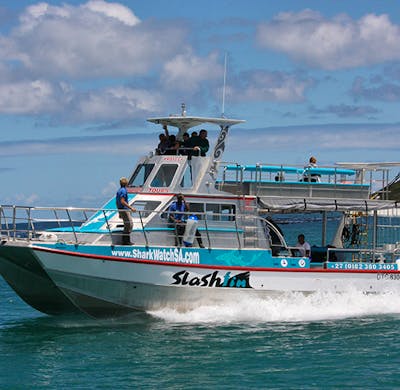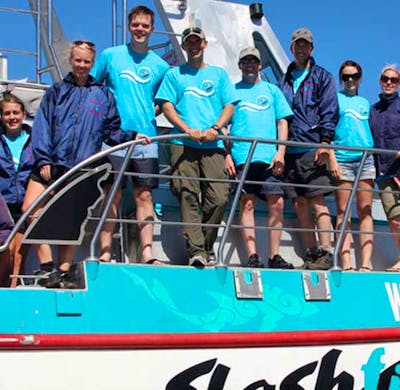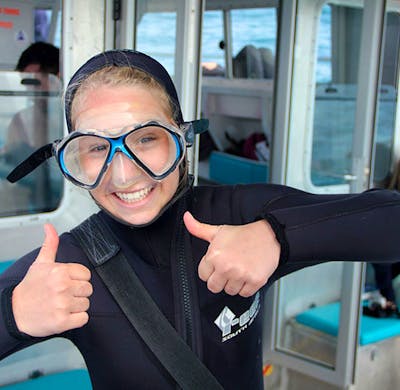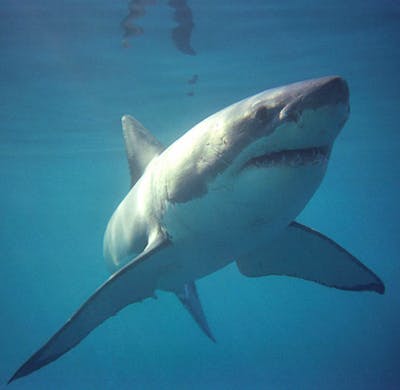2016 at Shark Conservation Assistant
from 1,763€
Shark Conservation Assistant
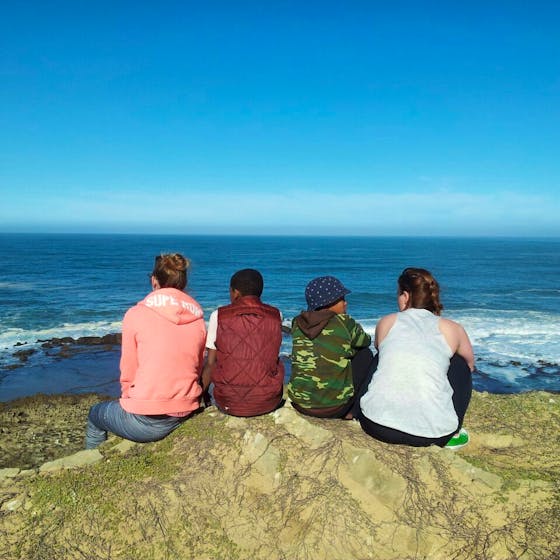
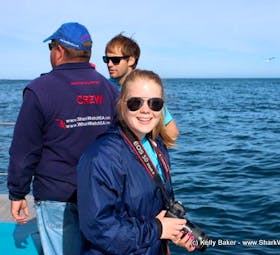
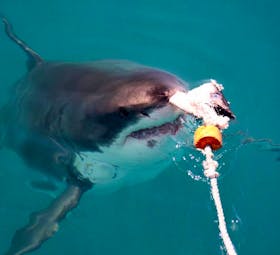
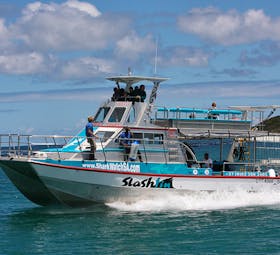
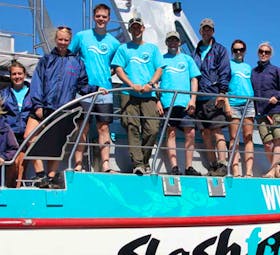
Highlights
- Delve into the behaviors and biology of Great White Sharks and other fascinating marine species inhabiting the Gansbaai coast.
- Spend the majority of your time at sea aboard Slashfin – our cage diving vessel – or the research boat Lwazi. Rare research trips offer a chance to contribute to ongoing projects.
- Utilize your microscope skills for blood slides of African Penguins, assisting with data recording and medication.
- Acknowledge the behind-the-scenes work of biologists, involving data analysis, verification, and office tasks.
Especially suitable
About the program
You will learn about the behaviors and biology of Great White Sharks and the other species in our seas during this exciting project, situated in Gansbaai.
About the Program
This exciting project is situated in Gansbaai – the shark cage diving capital of the world – and is about a 2 hour drive from Cape Town. The coast around Gansbaai is home to multiple marine species. There are shark sightings all year, peaking in the Southern Hemisphere in winter ...
Typical day
Programs run for 5-7 days a week, normally from Monday to Sunday as the project is partnered with an ecotourism business.
Off days are granted upon request with a days notice or if there is bad weather.
Typical tasks include:
Great White Sharks
How will you be involved?
Duties will vary depending on ...
Free-time activities
Area information
Gansbaai is situated 2 hours from Cape Town.
This former fishing village turned bustling town and tourism Mecca is the business hub that anchors a diverse and colourful community. The main road and side streets are dotted with an array of old and new shops and pubs, diners and ...
Requirements
What's Included
What's NOT included?
Details on arrival
Volunteers can join us anytime throughout the year!
Program fees
Meet your organization

SAVE Foundation
Non-profit - founded in 2007
Verified by Volunteer World
Coordinated by

Shona
About the project
59 reviews ·  4.6
4.6
Location

You might also be interested in
-
Great White Sharks
Pelagic Shark
Plastic Reduction
Shark tagging
Shark Conservation
Waste Reduction
Family Volunteering
Mission Trips
Adults
Global Volunteer Opportunities
Animals in South Africa
Planning a Gap Year in South Africa
Projects Abroad
Group Volunteering
Great White Shark in South Africa
Best Volunteer Programs
Couples
Voluntouring
High School Volunteering
Animals in Africa
Under 18s Volunteering
Marine Big 5
Mission Trips to Africa
Volunteer Trips for College Students
